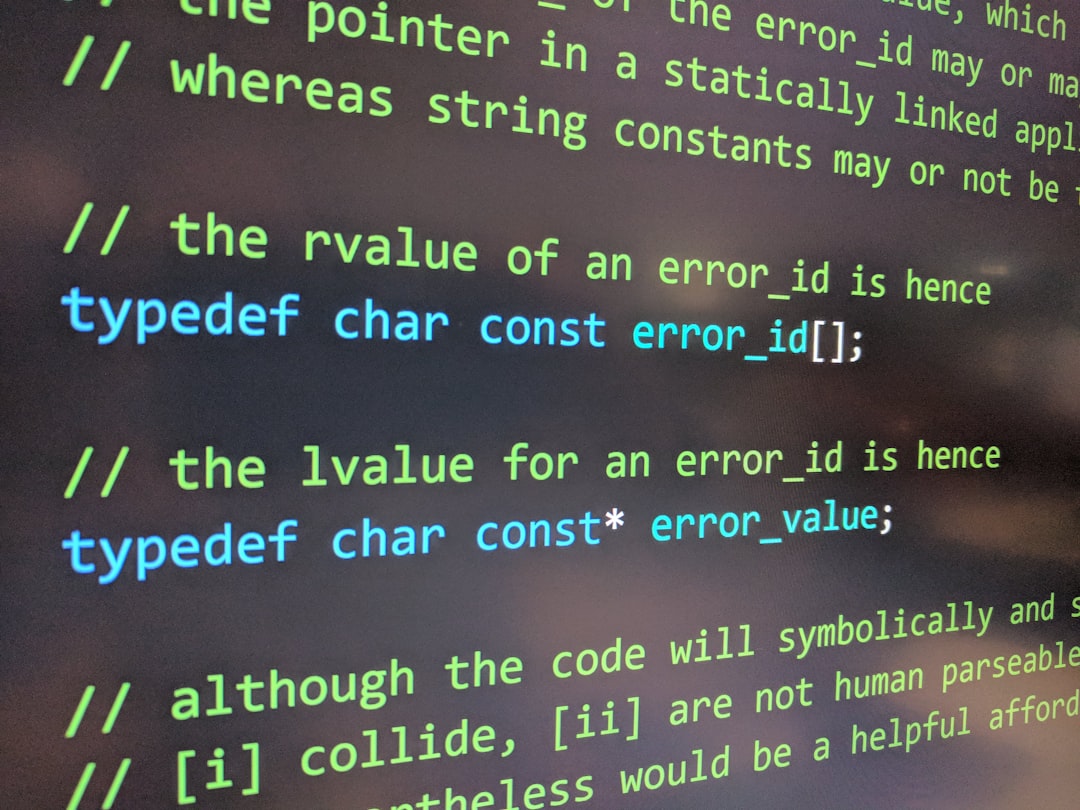How to Fix “Failed to Save File: Service ‘amali’ Failed”
If you’ve encountered the error message “Failed to Save File: Service ‘amali’ Failed”, you’re not alone. This error often appears when working on systems that rely on specific services to handle file-saving operations. Whether you’re in a software development environment, configuring a web application, or using a proprietary system with background services, the root cause of this error can likely be traced to misconfigured services, permission issues, or system process failures.
This guide walks you through possible reasons why this error occurs and how to fix it using step-by-step instructions. By understanding the components involved and applying effective troubleshooting strategies, users can often restore functionality quickly and prevent the issue from recurring.
Understanding the “amali” Service
The term ‘amali’ in this context refers to a background service responsible for handling file input/output operations on certain platforms or systems. It might be a part of a proprietary software stack, a custom service managing project state, or even a daemon used by third-party applications. If this service fails, it cannot execute tasks such as saving or modifying files.

The failure could be due to a range of issues including:
- A missing or corrupted executable
- Permission issues in the directory where the file is being saved
- Dependencies that the service relies on being absent or conflicting
- System resource limits (e.g., disk space, memory usage)
- Incorrect configurations or misbehaving plugins
Understanding your specific implementation of ‘amali’ is key. Check documentation or support forums for your toolset to verify exactly what the service does and where it resides.
Steps to Fix the Error
Here’s a detailed breakdown of steps you can follow to fix the “Failed to Save File: Service ‘amali’ Failed” error:
1. Verify Service Status
First, check if the ‘amali’ service is running. Depending on your operating system:
- Linux/Unix: Use the terminal command
systemctl status amali.service - Windows: Open Task Manager or Services Manager and scroll down for anything named “amali” or similar
- macOS: Use
launchctl list | grep amalito see if it is registered and active
If the service is not active, try restarting it:
sudo systemctl restart amali.serviceOn Windows, you can usually right-click the service in Services Manager and select Restart.
2. Check for Permission or File Lock Issues
A common cause of the error is a permissions conflict. Make sure the directory and the file you are trying to save have proper read/write permissions:
- Ensure the current user has write access
- If multiple processes are trying to access the file simultaneously, implement a locking mechanism
- Check for read-only flags at the file system level
Especially in shared environments, the file might be opened by another process. Try closing applications using the same file and attempt saving again.
3. Review Application Logs
Your software environment or framework may have logs that provide more detail about the failure, such as exact line numbers or service response messages. These logs can usually be found in the following locations:
- /var/log/ directory for Linux users
- Event Viewer for Windows users
- Built-in log directories of your development tool (like logs folder in project directory)

Reviewing logs can help you identify if other services are involved in the error, or if related processes such as dependency services are failing alongside ‘amali’.
4. Check for Dependency Failures
Services often depend on other components. If the ‘amali’ service relies on database access, file storage systems, or network services, then failures in these components can cause the service itself to fail.
To test this, try running the service manually in debug or verbose mode, if supported. This often reveals information about missing libraries or network issues.
5. Reinstall or Restore the Amali Service
If the service is corrupted or missing key files, a clean reinstall may be necessary. Here’s how to do that:
- Back up any configuration files associated with the service
- Uninstall the service using your system’s installer or package manager
- Reinstall using official .deb, .rpm, or installer packages
- Restart the system and monitor logs for issues
In some cases, contacting the software vendor or support group may be necessary to obtain a fresh, valid installation package for the ‘amali’ module.
6. Update Operating System and Dependencies
Sometimes the error could be a result of incompatibility between the service and your current OS or dependencies. Ensure that your system packages are up-to-date:
sudo apt update && sudo apt upgradeMake sure you’re not using deprecated versions of libraries or services, particularly if ‘amali’ was installed a long time ago or comes from a third-party vendor.
Preventing the Issue in the Future
Once resolved, it’s good practice to implement checks and monitoring for the health of background services like ‘amali’:
- Establish automated health checks and send alerts if a service stops unexpectedly
- Implement logging that provides verbose output while saving files
- Create a periodic backup of scripts or systems relying on the ‘amali’ service
- Use version control for configuration files in environments where multiple developers are collaborating
Automation tools like cron jobs, systemd timers, or third-party monitoring solutions like Prometheus or Zabbix can help keep an eye on optional services critical to system stability.
Conclusion
The error message “Failed to Save File: Service ‘amali’ Failed” may seem daunting, but with a methodical approach to diagnosing service availability, permissions, configuration settings, and dependency validation, users can often resolve the issue relatively quickly. Whether it’s through restarting the service, checking logs for hidden messages, or reinstalling necessary files, the key is to address one layer of the system at a time.
FAQ
-
Q: What is the ‘amali’ service?
A: It is a specialized background service used by certain applications to manage file operations and system tasks. The exact implementation depends on the software environment. -
Q: How do I restart the ‘amali’ service?
A: Use platform-specific tools likesystemctl restart amali.servicefor Linux or the Services panel in Windows. -
Q: Can I disable the ‘amali’ service?
A: Not recommended unless you are certain no critical process depends on it. Some environments rely on it for core file operations. -
Q: Are there logs where I can see more details about the error?
A: Yes, check your application logs or system logs (Event Viewer on Windows or /var/log on Linux) for messages related to ‘amali’. -
Q: What if restarting the service doesn’t work?
A: In that case, investigate permissions, reinstall the service, check for missing dependencies, or consult the software vendor.
- Top 5 Languages Every Web Developer Should Know - February 12, 2026
- Antarvacna: A Journey Through Its Historical and Cultural Roots - February 12, 2026
- Laaster vs Traditional Cloud Solutions: Why Real‑Time Architecture Wins In 2026 - February 11, 2026
Where Should We Send
Your WordPress Deals & Discounts?
Subscribe to Our Newsletter and Get Your First Deal Delivered Instant to Your Email Inbox.



